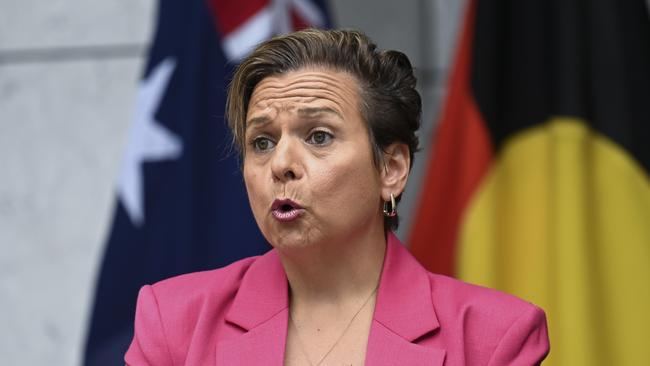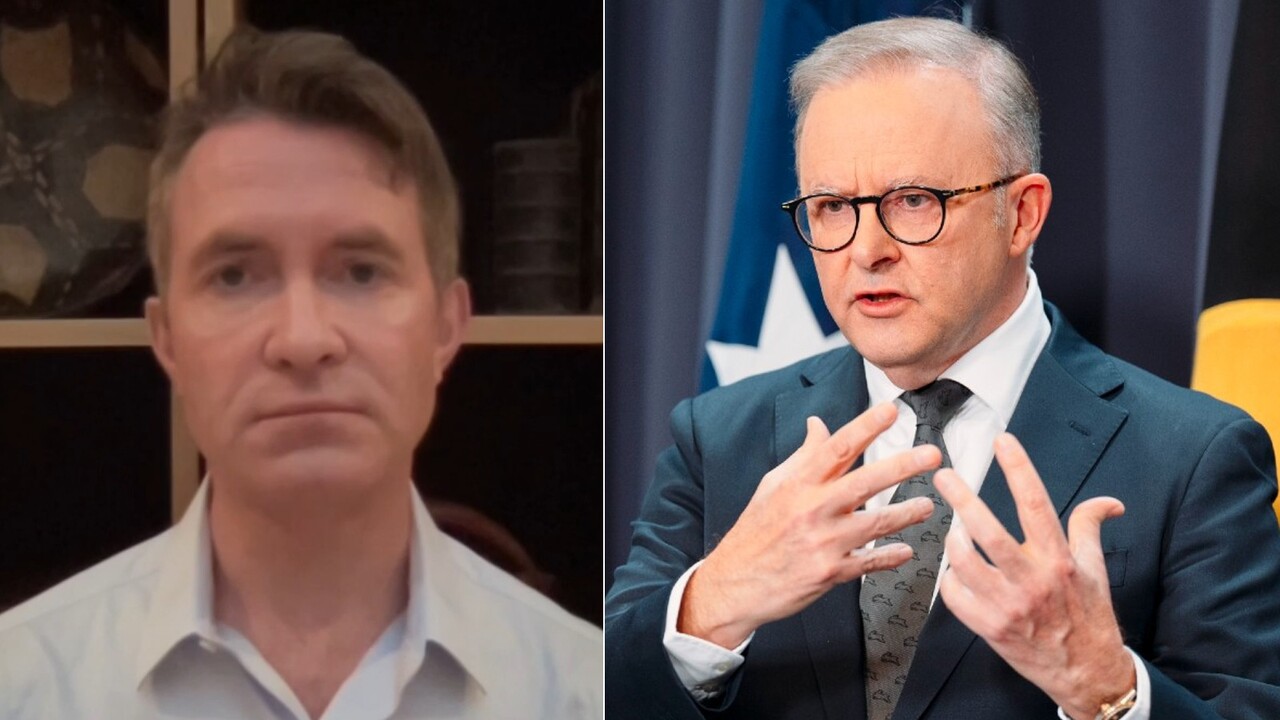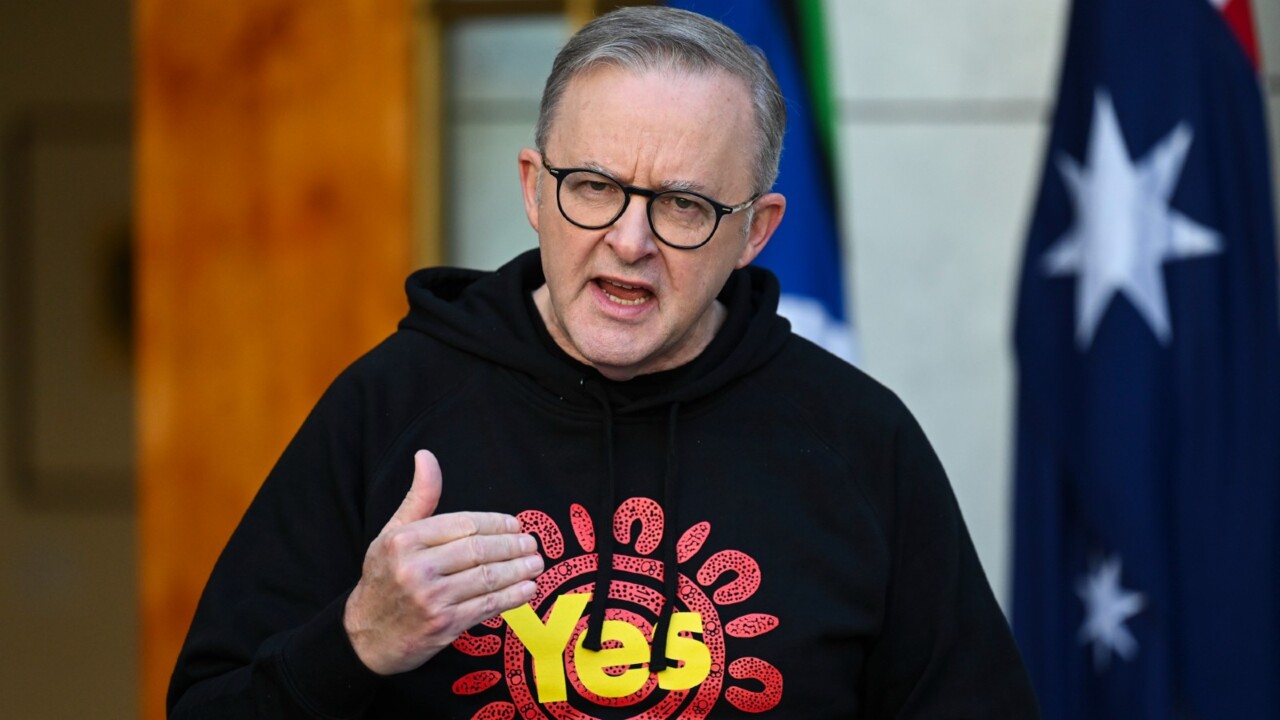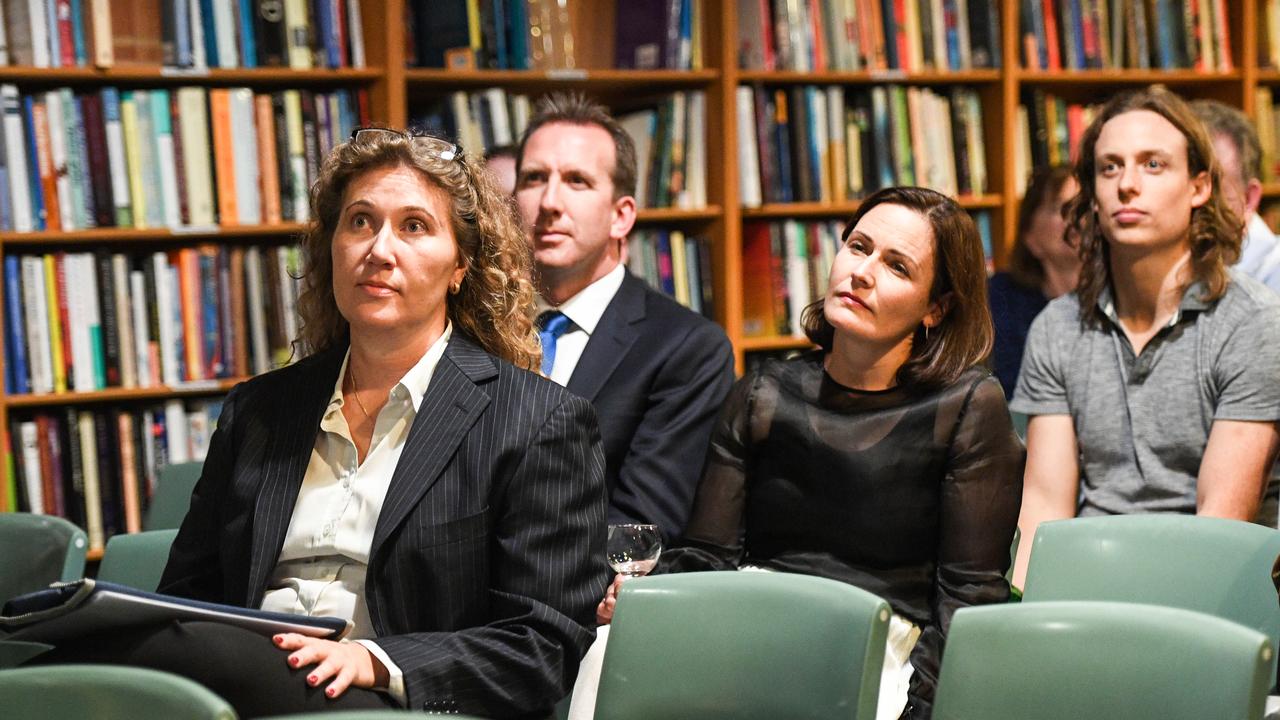Truth is, the misinformation battle may be unwinnable

Michelle Rowland, the Minister for Communications, is making another valiant effort to rein in the adverse effects of ungoverned digital platforms being able to post misinformation and disinformation, which causes serious harm to the community. She has introduced a revamped version of the government’s Communications Legislation Amendment (Combatting Misinformation and Disinformation) Bill 2024. The draft bill had to be comprehensively reworked when it solicited adverse comment from all quarters.
The minister has told parliament that the revised bill honours the government’s commitment to vest “the Australian Communications and Media Authority with new powers to create transparency and accountability around the efforts of digital platforms to combat mis- and disinformation on their services, while balancing the freedom of expression that is so fundamental to our democracy”. Finding that balance without even a statutory bill of rights is the challenge.
Basically, misinformation is inaccurate information. The draft bill now specifies that the inaccurate information has to be “reasonably verifiable as false, misleading or deceptive”. Misinformation becomes disinformation if “there are grounds to suspect that the person disseminating, or causing the dissemination of, the content intends that the content deceive another person”.
When introducing the draft bill last year, the minister tried selling it to the public with a couple of incontrovertible examples of unwarranted misinformation or disinformation causing serious harm.
She said: “And let’s be clear about the kind of harm we’re talking about here. This can be misinformation that actually results in people ignoring strong health advice. It can be misinformation that actually endangers lives by saying that a predicted pathway of a bushfire, for example, is going in another direction by publishing a fake map with emergency services branding. That is exactly the kind of behaviour that we are seeking to address with these new laws.”

This time around, the minister once again gave a couple of examples of serious harm to which no one could take exception: “Mis- and disinformation about the stabbing attacks in Bondi Junction and recently in Southport, UK, are just two examples that illustrate the need for digital platforms to do more to prevent and respond to its spread.”
The huge problem confronting government with this bill is that it purports not only to deal with these sorts of uncontroversial examples. Serious harm includes “harm to public health in Australia, including to the efficacy of preventative health measures in Australia”. But it also includes “harm to the operation or integrity of a commonwealth, state, territory or local government electoral or referendum process”.
It’s one thing to have ACMA reining in non-compliant digital platforms, run out of the US, to prevent serious health risks to Australians infected by disinformation on their platforms. It’s an altogether different thing to arm ACMA with the power to scrutinise whether things being said during an election campaign or referendum campaign are “reasonably verifiable as false, misleading or deceptive”, and intended to deceive.

Countries such as the US with a constitutional bill of rights or countries such as the UK with a statutory bill of rights are very unlikely to try applying this sort of regime to political speech. The US Constitution’s First Amendment provides that congress shall make no law “abridging the freedom of speech, or of the press”.
The UK Human Rights Act recognises that everyone has the right to freedom of expression: “This right shall include freedom to hold opinions and to receive and impart information and ideas without interference by public authority and regardless of frontiers.”
If these countries were to attempt the proposed Australian regime, the courts would strike down any attempt by the regulatory authority to censor political speech simply because it was false and because the regulator thought that such speech would harm the operation of the electoral process or of the referendum process. Even in Australia, the courts could well intervene. Even without a bill of rights, we enjoy the implied freedom of political communication set down by the High Court.
One has to ask: what is the evil that this part of the bill relating to political activity is wanting to stamp out? And would ACMA be able to stamp it out with the High Court standing idly by?
American disinformation expert Nina Jankowicz, author of How to Lose the Information War, was recently in Australia. She raised the alarm on 9000 digital accounts out of China that were active during the voice referendum campaign. She told Fran Kelly on ABC Saturday Extra:

“They were driving the No vote for certain. How effective they were is hard to say without looking at the data.” Speculating on the Chinese motivations, she said, “I think in particular not just to undermine Australian democracy because China of course has mining rights in Australia and a voice to parliament for Indigenous people could have affected that.”
Kelly then asked: “What’s the difference between what we understand is disinformation and what we all might recognise as political opponents telling untruths about the others’ policies or objectives or you know political dirty tricks?”
Jankowicz answered: “Disinformation is more deliberate and it’s more malign. What we’ve seen in particular around the voice campaign is the injection of noise into the debate to make people feel like they can’t know the truth, and in Australia that manifests itself in the slogan, ‘If you don’t know, vote no’.”
But hang on. There’s always an “injection of noise” in any referendum debate. Feelings are still raw with the voice referendum. So let’s think back to the 1951 referendum which was a showdown between the two finest constitutional lawyers ever to hold high political office in Australia: Robert Menzies and Dr H.V. Evatt. Successfully opposing the referendum to extend the power of the commonwealth parliament to ban the Communist Party, Evatt and his colleagues approved a No pamphlet that stated: “The Menzies government is drunk with power and thirsts for still more power. Now is the time for you to stop Mr Menzies getting any more power. An emphatic “NO” majority will stop him before it is too late. Consciously or unconsciously, the Menzies government is heading fast towards totalitarianism in Australia. Play safe and preserve the Constitution as it now stands. Play safe and preserve the jurisdiction and authority of the High Court of Australia.”
Would Jankowicz class these remarks as disinformation? There’s much more noise and hyperbole in these remarks than in the simple statement: “If you don’t know, vote No”. During a fierce political campaign, one person’s disinformation is another person’s political credo of “whatever it takes”.

The dispassionate academics Murray Goot and Sean Scalmer concluded their 2013 study, Party Leaders, the Media, and Political Persuasion: The Campaigns of Evatt and Menzies on the Referendum to Protect Australia from Communism: “The campaign strategies of the two leaders were much as the contest demanded: each played to their strengths and sought to exploit their opponent’s weaknesses. If this meant adopting positions at odds with previous positions, talking past one another, introducing ‘extraneous’ matter, ‘scaremongering’ and so on, these were the turns the contest took.”
Presumably, Rowland will want to avoid the future prospect of an Evatt or Menzies having their comments posted on a digital platform in the heat of a political contest being reviewed by ACMA as possible disinformation.
The real challenge for the minister is that debating such a detailed bill without the backstop of a constitutional or statutory bill of rights recognising the right to freedom of expression, there are no clear guard rails for getting the balance right for “the freedom of expression that is so fundamental to our democracy”.
Ironically, the Coalition, which most opposes a statutory bill of rights, will agitate loudest against any possible interference by ACMA with the hallowed “freedom of expression that is so fundamental to our democracy”.
Father Frank Brennan SJ chaired the Media Entertainment and Arts Alliance’s Review of the Australian Journalists’ Code of Ethics in 1996. He chaired the National Human Rights Consultation for the Rudd government and was a member of the Turnbull government’s expert panel that conducted the Religious Freedom Review. This article will appear in Eureka Street on Monday.





